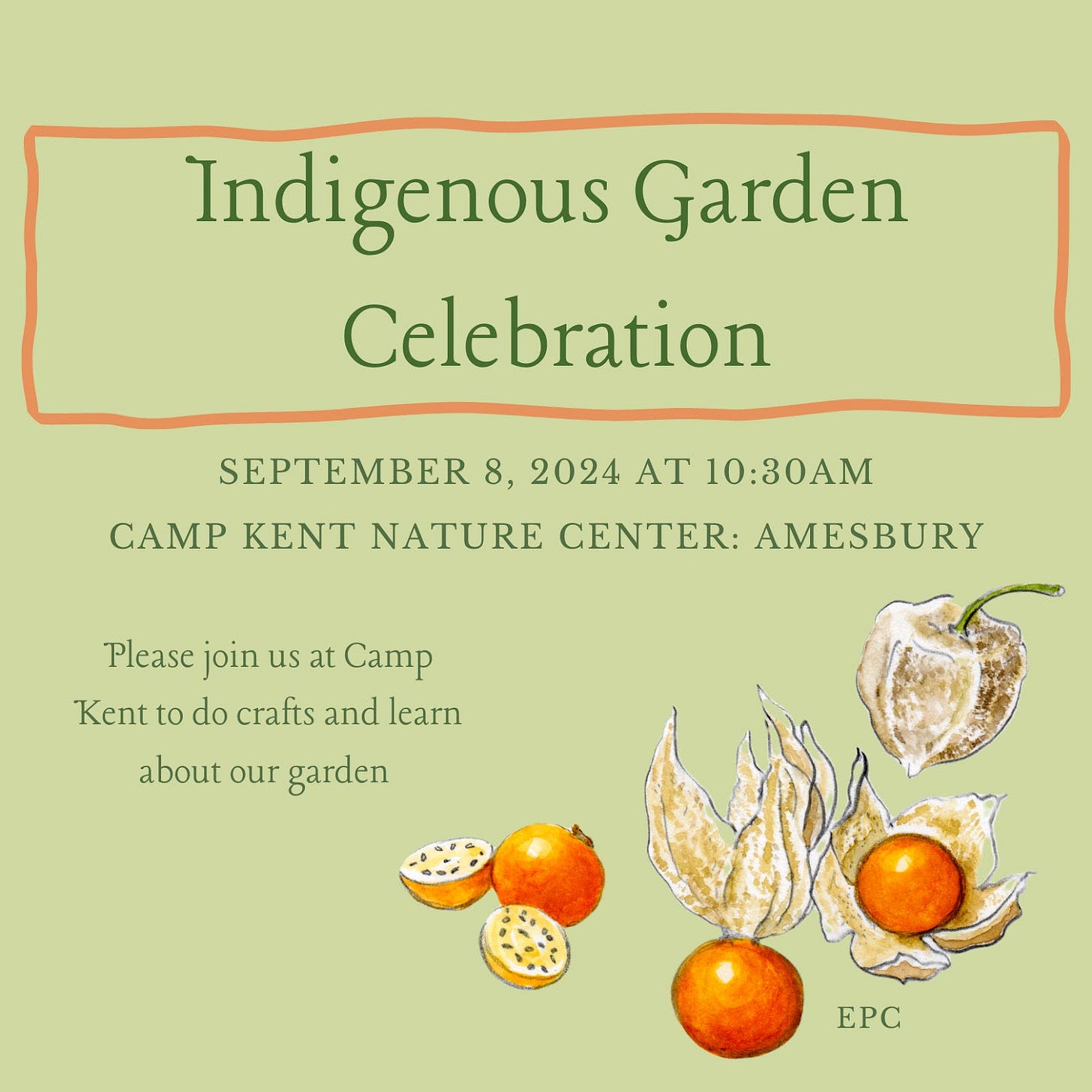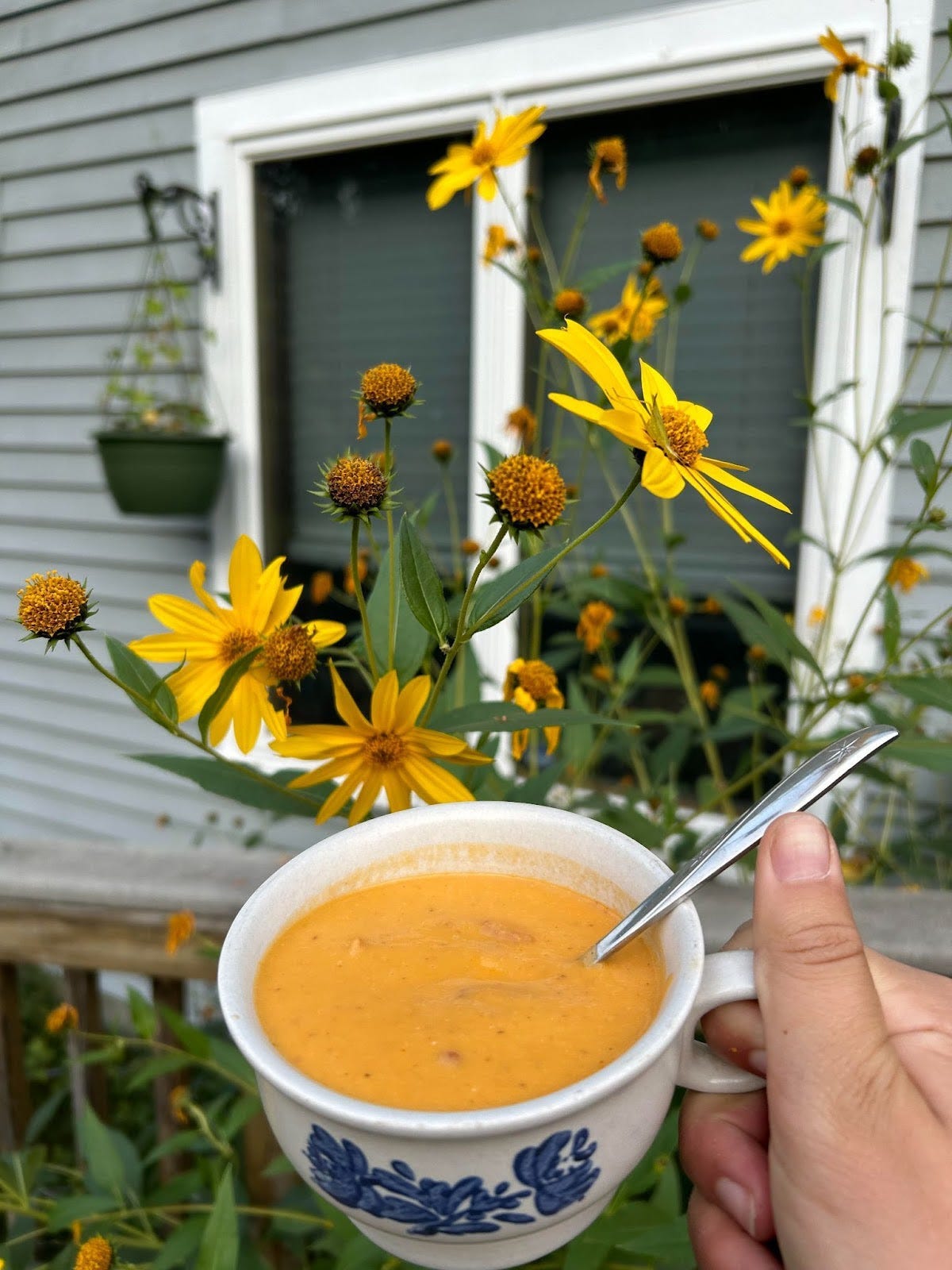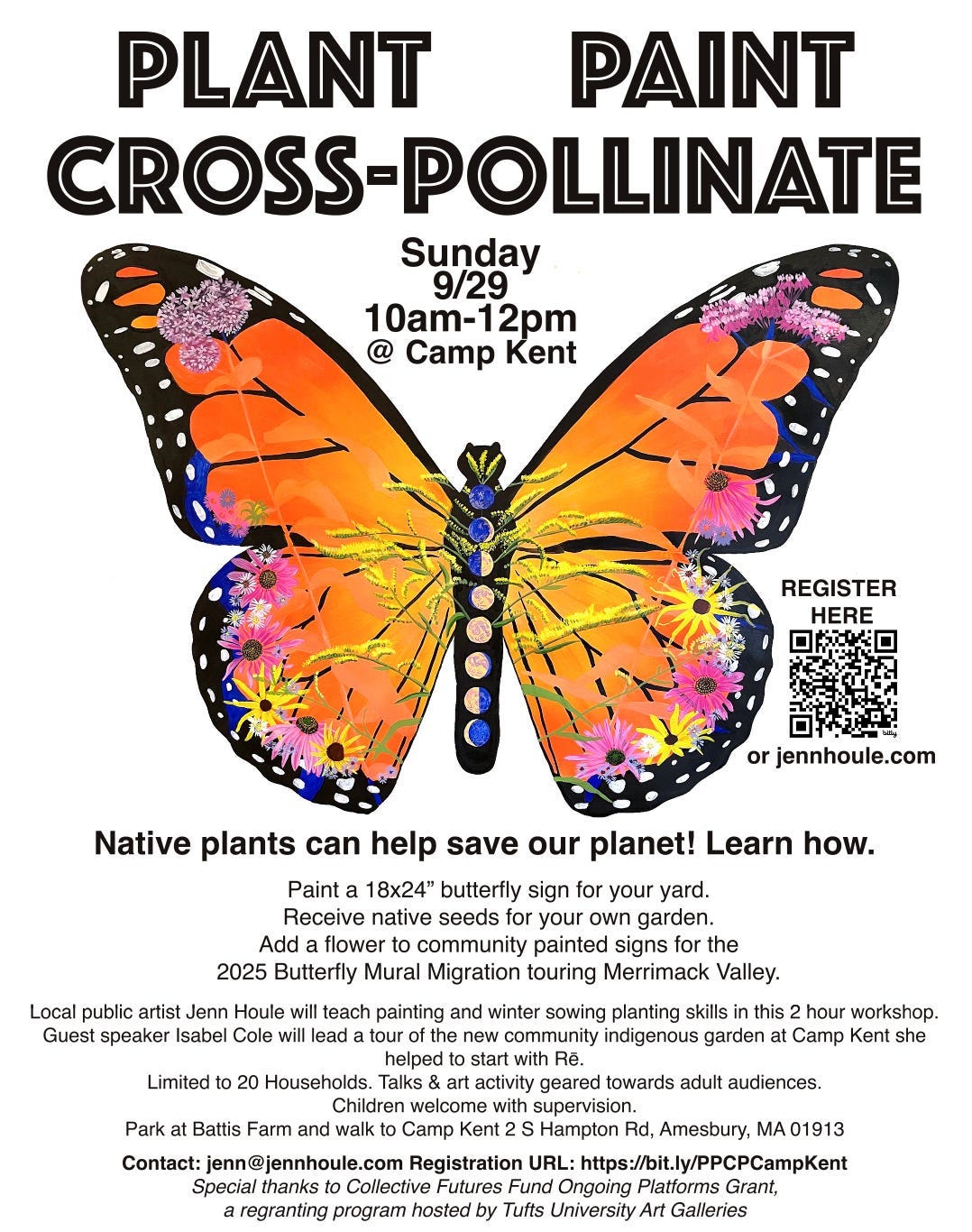PAR Info Webinar + September Garden Update
The following letter is written by Isabel, who has been one of the main people caring for our garden!
Hello Friends!
I hope everyone is having a nice end to the summer! This week was the harvest moon, a full moon that represents the start of fall which is close to the date of the fall equinox coming on September 22 as we transition to being in cooler fall weather (and a time to listen to the infamous Neil Young song!). What a beautiful natural reminder of a time of year that brings people together outside to celebrate the fruits of the year's labor, to reflect on the year you had, and make plans for what you want to see next year. It's an interesting transition for me, because when I was a student, my yearly calendar followed the same schedule as the gardens, with the beginning of the new year in the fall. Now as a graduate with a job in gardening, I get to continue this same tradition and honor the changing seasons of the year in my work. That way, you have the bounty and celebration of the year while also beginning anew as opposed to celebrating a new year in the middle of the winter.
I have been told that the harvest moon represents a time to reflect and remove things that do not serve you from your life. In both our personal lives and in the garden, I hope we can all take a moment to celebrate, reflect, and build ideas for the new year. I will be doing that by creating a reflection and plans for the garden for next year. Stay tuned to hear what we have in store.
On the note of celebration, I would like to officially thank one of our biggest donors to this project. This program has been supported by an $800 grant from the AmesburyCultural Council, a local agency that is supported by the Mass Cultural Council, a state agency. We are so thankful for all the work they do to support the community and get involved with projects such as this one. This money has made a big difference for us to buy the materials and infrastructure for our garden. Community gardens truly take the effort, passion, and support of the whole community and we are so thankful for how welcoming the Amesbury Cultural Council has been to Rē as we build projects here.
One of the fall closing activities for the garden is cover cropping. Cover cropping is a way to improve soil health, reduce erosion, and grow a fall crop before the cold. This year we are growing field peas from Johnny's Seeds! I chose this crop because it requires no tillage to integrate into the soil and it will die off in the winter so we don’t have to pull it up in the spring. I used this article from UNH extension to help me pick a crop and it provides information about what it means to use cover crops for those of you that are interested. Because UNH is not far from our garden it means the research they do is applicable to our garden work with similar soil and climate variables.
In the process of promoting our garden and working with the community, I am so pleased to share that we are working with a fabulous local artist, Edith Pucci Couchman, to make some beautiful illustrations of our garden. We want to highlight some of the native crops we grew in collaboration with INHCC as well as plants like okra and heirloom tomatoes. We are so excited about this artwork and we expect it to be ready sometime this winter. For those of you interested in Edith’s work, this is a Link to her website with a treasure trove of free lesson plans and illustrations she has created to share with the community. She has done so much in the education field to talk about nature, indigenous peoples, and local farming. Our poster for the Indigenous Garden Celebration features her artwork of ground cherries that she shared with me from a project she did at Strawbery Banke Museum!
On that note: our Indigenous Garden Celebration was a blast! We had 30 community members join us at the Camp Kent garden for a garden tour, snacks, cornhusk doll making, and a song and speech by Paul and Denise Pouliot, the head speakers of the Cowasuck Band of the Pennacook-Abenaki People. We had so much fun showing guests how to harvest Abenaki Skunk beans and we had lots of people excited to snack on the ground cherries in our garden. We are excited to continue seed saving from this garden and to share what we have grown with the community. If you are interested in learning more about INHCC and indigenous gardens here is a link to the seasonal calendars about Native plants with lesson plans and artwork! INHCC also has many other helpful resources and information about Indigenous history, lesson plans, and research. For other learning opportunities, I recommend the book Braiding Sweetgrass or a trip to Strawbery Banke Museum or Plimoth Patuxet Museum to learn more about indigenous peoples and their traditional foodways.
This past week, we also had a beautiful community dinner with tomato soup from our garden (basil and tomatoes grown right at camp Kent) made by local Chef Victor! It was a lovely evening with community members learning about our garden and music from a local guitarist as we sat picnic-style at Camp Kent. Be on the lookout for plans and the location of future community dinners!
Picture- tomato soup and native Sunchokes in the background
Event Update (poster below)! If you would like to come paint and learn more about pollinators, our work in the garden, and about Camp Kent - this event is for you! This will be one of our last events in the garden and we would love our community to get involved! If you are interested in signing up or want to learn more please click here.
Thank you to everyone that is involved with the garden and for all your support! Happy Fall!
Isabel
Upcoming Info Webinar
Participatory Action Research for Epistemic Rebels INFO WEBINAR
📅 Date: September 23, 2024
🕐 Time: 1 PM (Eastern Time)
📍 Location: Online (Zoom)
This interactive webinar will cover:
•Introduction to us and our work and passion in the world
•An introduction to PAR and why it is so important right now: Understanding the basics and significance of PAR.
•Brief case Studies: Real-world examples of successful PAR projects.
•Details about how this upcoming workshop will support you and your research and community
•Why now?









